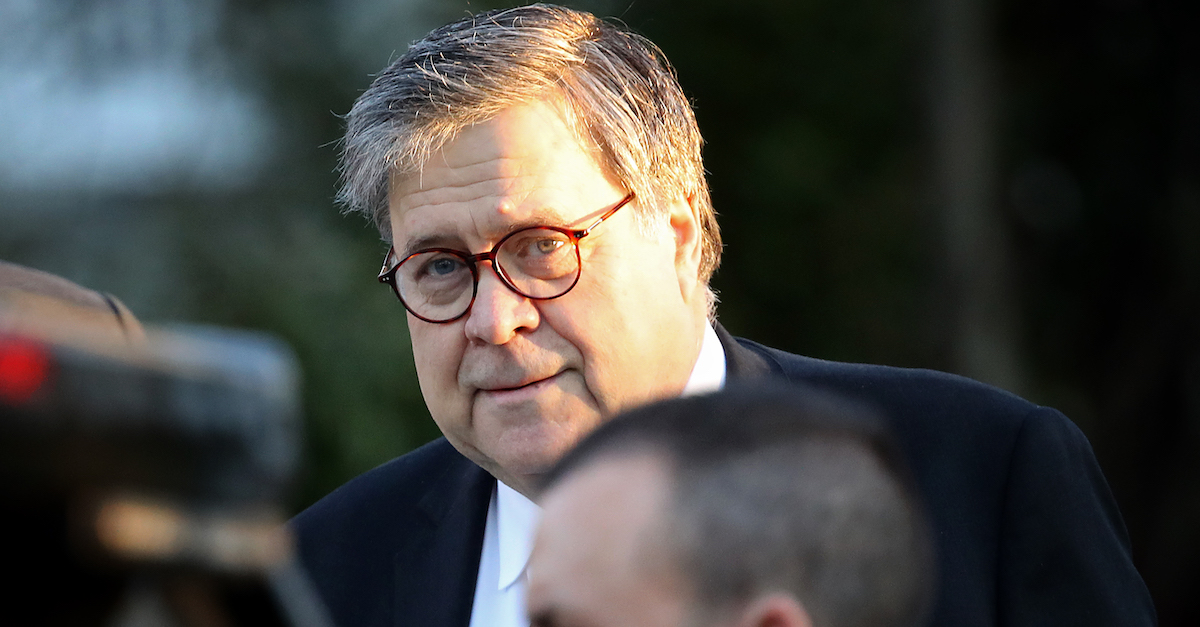
Before William Barr became U.S. Attorney General for the second time, he was watching the developments of Special Counsel Robert Mueller‘s investigation like everyone else. Unlike everyone else, however, he submitted his thoughts on the matter and they were seemingly received with open arms — immediately. The day Barr sent that memo–June 8, 2018–he just happened to have been invited to meet with Department of Justice (DOJ) officials.
Three weeks later (June 27), Barr had lunch with said officials at the arranging of the Office of Legal Counsel’s (OLC) Assistant Attorney General Steve Engel, the Guardian reported.
At the time this occurred, Jeff Sessions was still the AG. It seemed obvious, however, that Sessions, having recused himself from the Russia probe, was not long for this role. What happened next? Matthew Whitaker was appointed acting AG and, after a few tumultuous months, was replaced by Barr.
The immediate response from DOJ officials to Barr’s memo is worth noting in itself, but that’s not quite all. The aforementioned Engel was reportedly involved in Barr’s recently-announced decision-making regarding obstruction. Mueller did not allege obstruction but did not exonerate President Donald Trump of it. With apparent input from Engel, Barr and Deputy Attorney General Rod Rosenstein said the obstruction evidence is “not sufficient.”
Per the Guardian:
Barr announced last month he had concluded there was “not sufficient” evidence found in the special counsel’s investigation to establish that Trump had committed obstruction of justice. He made the decision, he wrote in a letter to Congress, after consulting with Engel – who is a legal adviser to the White House – and Rod Rosenstein, the deputy attorney general.
A DOJ spokeswoman said that the lunch happened in real life, but the “timing was coincidental and the memo was not discussed.” She suggested instead this was par for the course at the OLC.
“OLC regularly brings back the former heads of OLC (as do other divisions) to eat with the new team and share experiences from their time at OLC,” she added.
You may remember that Barr sent the “unsolicited” memo to DOJ officials in June 2018, expressing his belief that the obstruction of justice probe that began after President Trump fired former FBI Director James Comey was a no-go. Barr memorably characterized the “specific obstruction-of-justice theory” he believed his long-time friend Robert Mueller was considering as “fatally misconceived.” Barr said it was well within Trump’s authority to fire Comey and to ask Comey to give fired National Security Advisor Michael Flynn a “break.” Trump would later tell NBC News’ Lester Holt that “this Russia thing” had something to do with the firing.
[Image via Win McNamee/Getty Images]